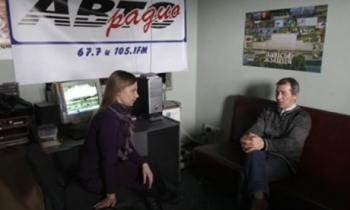LONDON (Reuters) - Writers who fought long and hard for freedom of expression argued on Friday that the uproar over cartoons of the Prophet Mohammad showed how easily art could be hijacked by politics and religion, with dangerous consequences.
While some criticised the caricatures that first appeared in a Danish newspaper and have since been reproduced by some European media, they also repeated the words attributed to the 18th Century French philosopher Voltaire:
"I disapprove of what you say, but I will defend to the death your right to say it."
Anger has swept the Middle East and Asia, where Muslims burnt and tore up European flags, called for revenge for cartoons they said were blasphemous and urged people to boycott Danish goods in stores.
One of the offending images featured the Prophet Mohammad wearing a turban shaped like a bomb.
Azar Nafisi, author of bestseller "Reading Lolita in Tehran" who fell foul of Iranian authorities before leaving the country for the United States in 1997, called on Muslims to moderate their response to the cartoon.
"We are polarising everything and reducing everything to politics," she told Reuters by telephone from Washington. "Religion, and especially Islam, has been reduced to politics.
"When we are sure of where we stand, we don't get insulted easily. I think it is up to Muslim people to show how sure they are of who they are and not make such an emotional response to cartoons that are in terribly bad taste."
WHAT ARE THE CONSEQUENCES?
Nirjay Mahindru, artistic director of the theatre group Conspirator's Kitchen, wondered where uproars like that surrounding the cartoons would end.
"I do worry about the fact that this is yet another manifestation of people waving the 'I am offended flag'," he said, adding that he had not seen the cartoons in question.
"We seem to be moving backwards into a reign of fear where we're all going down dead ends. We can't be creative, artistic, funny, witty, or daring without the risk of offending someone. The consequences will be artistic blandness."
Czech dissident writer Jiri Grusa, president of the PEN International organisation that represents writers around the world, said freedom of expression was a basic human right, and as such should be treated as a religion in itself.
"The defence of the right of freedom of expression does not imply any sympathy with the views of the authors," he told Reuters. "I have no sympathy for the cartoons, but I have to defend the right of people to say things, even stupid things."
Grusa was jailed for several months in former Czechoslovakia before being expelled in the 1980s by the Communist government.
The cartoon row is reminiscent of that surrounding novelist Salman Rushdie, author of "The Satanic Verses" whose criticism of Islam earned him death threats in 1989 and years of living in hiding. He was not available for comment on Friday.
Nafisi argued Muslims alone were not to blame for the cartoon row, saying that Westerners were often ignorant of Islamic history and culture, where poets and philosophers had themselves questioned and criticised orthodox religion.
"Part of the knee-jerk reaction to Islam comes out of ignorance in Western countries," she said.
"Had these cartoonists been aware that Islam is not just the face you see now, they would have been able to do better cartoons. Everything is reduced to mere politics, and therefore we are losing freedom in the West as well in the East."









